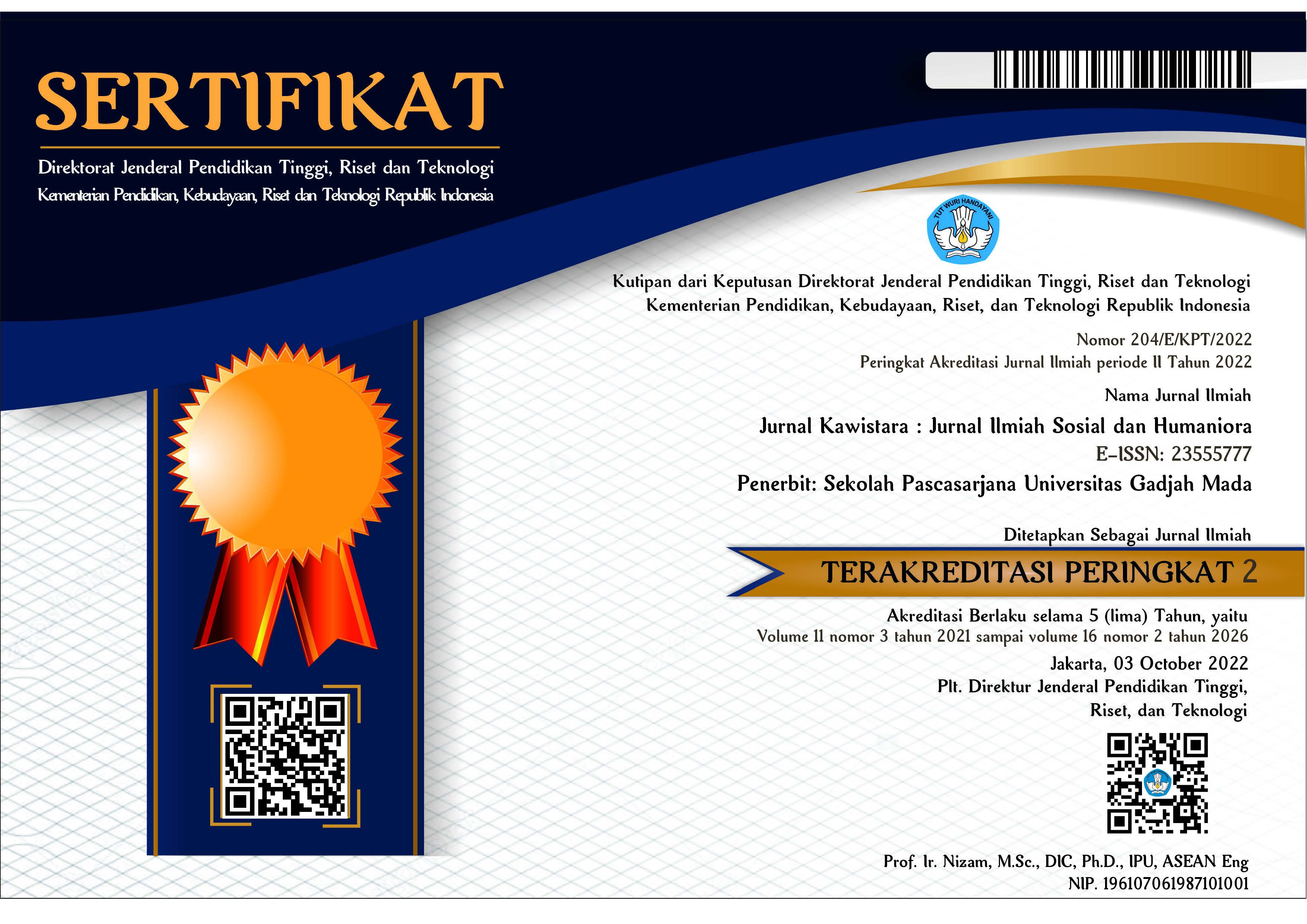HASIL UJI IMPLEMENTASI PNPM MANDIRI PERDESAAN KABUPATEN BANYUMAS
Dwiyanto Indiahono(1*)
(1) Jurusan Ilmu Administrasi Negara Fakultas Ilmu Sosial dan Ilmu Politik Universitas Jenderal Soedirman
(*) Corresponding Author
Abstract
Previous research have shown that the performance of the implementation of the National Program
of Rural Self Empowerment (PNPM-Mandiri Perdesan) in Banyumas is determined by variables: the
capacity of the target group, the capacity of the implementing agencies, the quality of communication
and socialization, as well as monitoring (monitoring) as an intermediate variable. Quantitative research
involving 400 respondents spread 5 districts and 20 villages were selected at random has been done.
Data were processed and analyzed include correlation, regression testing, and test the model. The
results of this study indicate that the implementation of PNPM-Mandiri Rural models tested can be
used to examine the implementation of PNPM Mandiri Rural elsewhere and can be used to check for
other poverty reduction programs based on empowerment.
of Rural Self Empowerment (PNPM-Mandiri Perdesan) in Banyumas is determined by variables: the
capacity of the target group, the capacity of the implementing agencies, the quality of communication
and socialization, as well as monitoring (monitoring) as an intermediate variable. Quantitative research
involving 400 respondents spread 5 districts and 20 villages were selected at random has been done.
Data were processed and analyzed include correlation, regression testing, and test the model. The
results of this study indicate that the implementation of PNPM-Mandiri Rural models tested can be
used to examine the implementation of PNPM Mandiri Rural elsewhere and can be used to check for
other poverty reduction programs based on empowerment.
Keywords
Empowerment, Implementation Model, The Target Group, The Implementing Agency, Communication and Monitoring
Full Text:
PDFArticle Metrics
Refbacks
- There are currently no refbacks.
Copyright (c)
Jurnal Kawistara is published by the Graduate School, Universitas Gadjah Mada.







